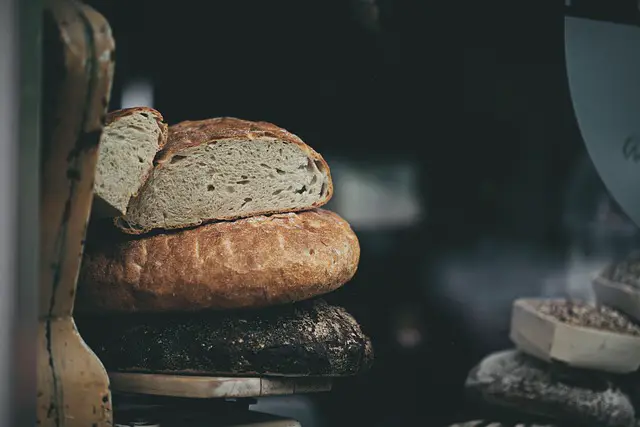Sourdough Hydration Calculator: Perfect Your Bread Recipe

Table of Contents
Sourdough Hydration Calculator
Ingredient Breakdown:
Flour:
Water:
Starter:
Salt:
Additional Ingredients:
Commercial Yeast:
Flour Type Details:
How the Sourdough Hydration Calculator Works
When it comes to baking sourdough bread, getting the right hydration level is essential for achieving that perfect loaf. A sourdough hydration calculator is a powerful tool designed to help bakers easily determine the correct amount of flour, water, starter, and other ingredients based on the dough’s desired weight and hydration percentage. Here’s how the sourdough calculator works and how it can help you in your baking journey.
Key Inputs for the Sourdough Calculator
The sourdough hydration calculator takes several important factors into account to ensure your dough turns out perfectly. These include:
- Total Dough Weight Desired: This is the total weight of the dough you want to create. It’s the sum of flour, water, starter, salt, and any additional ingredients. It’s important to enter this value accurately to ensure the other calculations are correct.
- Hydration Percentage: Hydration refers to the amount of water in relation to the flour in your dough, expressed as a percentage. A 70% hydration means you have 70 grams of water for every 100 grams of flour. Hydration affects the texture and crumb of your sourdough.
- Starter Percentage and Hydration: Your sourdough starter contains both flour and water. The percentage you enter will help the calculator determine how much flour and water are in the starter, which directly impacts the total hydration level of your dough. A starter at 100% hydration means equal parts flour and water.
- Salt Percentage: Salt is an important ingredient that enhances flavor and helps control fermentation. The calculator allows you to specify the percentage of salt in the dough relative to the total weight.
- Additional Ingredients: Sometimes, bakers add seeds, herbs, or other ingredients to their dough. The calculator can accommodate these additions by factoring in their weight, ensuring that the total dough weight remains accurate.
Example of Using the Sourdough Hydration Calculator
Let’s say you want to make a sourdough loaf with the following specifications:
- Target Dough Weight: 1000g
- Hydration: 75%
- Starter: 20% (at 100% hydration)
- Salt: 2%
Once you input these values, the sourdough calculator will calculate the required amounts of flour, water, starter, and salt. For instance:
- Flour: 571g
- Water: 428g
- Starter: 171g (which contains 85g of flour and 85g of water)
- Salt: 12.5g
The Sourdough Ratio Formula
The sourdough ratio is based on baker’s percentages. The formula typically consists of:
- Flour: 100% (this is your base ingredient)
- Water: Typically between 65% to 85% of the flour weight
- Starter: 15% to 30% of the total flour weight
- Salt: 1.8% to 2.2% of the total flour weight
For example, with a target dough weight of 1000g and a hydration of 75%, the calculation would be as follows:
- Flour (100%): 571g
- Water (75%): 428g
- Starter (20%): 171g
- Salt (2%): 12.5g
These calculations ensure that you have the correct balance of ingredients to achieve your desired dough texture.
Understanding Hydration Levels and Their Impact on Sourdough
The hydration level of your sourdough dough affects several key aspects of the final loaf:
- Crumb Structure: Higher hydration results in a more open crumb with larger holes.
- Crust: Higher hydration tends to produce a thinner, crisper crust.
- Dough Handling: High-hydration doughs are stickier and more challenging to handle, but they tend to result in a more flavorful and lighter bread.
For example:
- Standard Hydration (70%): Results in a relatively firm dough that is easier to handle but may not have the same open crumb structure as higher hydration dough.
- High Hydration (80%): Produces a dough with a very soft and sticky texture, leading to a bread with a more open crumb and larger air pockets.
Why Use a Sourdough Hydration Calculator?
The sourdough hydration calculator makes it easier for bakers to:
- Achieve Consistency: By providing precise ingredient amounts, the calculator ensures that every batch of sourdough turns out the same, whether you’re making a small or large loaf.
- Adjust for Custom Recipes: You can tweak the hydration percentage, starter amount, and salt levels to suit your personal preferences.
- Simplify Complex Calculations: The tool automates the otherwise complicated math involved in sourdough baking, saving time and reducing errors.
Conclusion
The sourdough hydration calculator is an invaluable tool for both novice and experienced bakers. By taking the guesswork out of ingredient measurements, it allows you to focus on perfecting your technique and achieving consistent results. Whether you’re experimenting with new hydration levels or sticking to a trusted recipe, this calculator ensures that you have the right amounts of each ingredient for your perfect loaf.